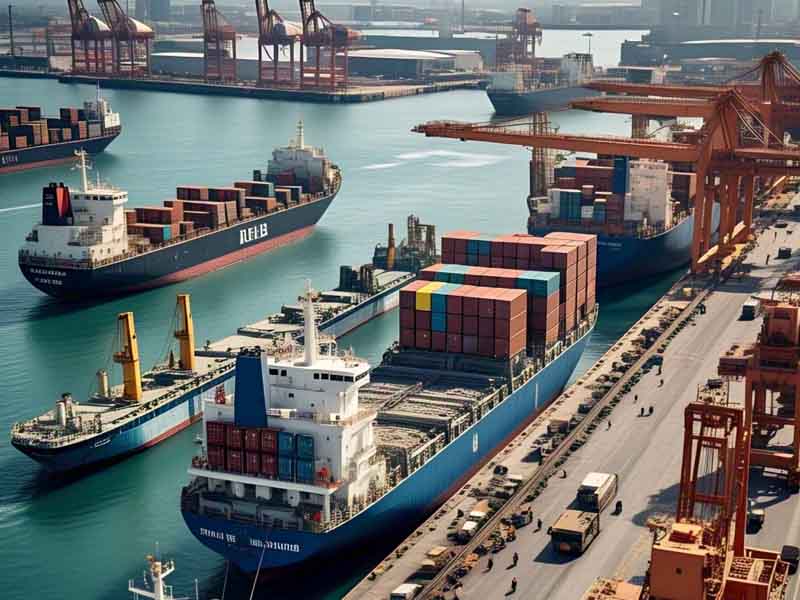
Resilienceapac – Free trade negotiations between India and New Zealand are back on track after a decade-long hiatus. This significant development comes as New Zealand’s Prime Minister Christopher Luxon embarks on a five-day visit to Delhi, engaging in high-level discussions with his Indian counterpart, Prime Minister Narendra Modi. The two leaders have agreed to initiate the first round of negotiations next month, signaling a renewed commitment to strengthening bilateral economic relations.
Luxon described the announcement as a “major breakthrough” for both nations, emphasizing India’s strategic importance to New Zealand’s trade ambitions. “India holds significant potential for New Zealand and will play a pivotal role in doubling our exports by value over the next 10 years,” Luxon stated. Currently, trade between the two countries stands at under $2 billion, leaving ample room for growth.
While free trade remains the focal point of discussions, the scope of cooperation extends beyond commerce. New Zealand has expressed its intention to deepen collaboration with India in areas such as defense, security, sports, and environmental initiatives. As part of this broader engagement, the two nations have signed a defense cooperation pact aimed at enhancing maritime security. Additionally, they are exploring opportunities for greater collaboration in the digital payments sector, a field in which India has made significant strides.
“Transformed Theater and Comedy: The Lasting Impact”
Luxon’s visit coincides with a major geopolitical conference in Delhi. Where he serves as a keynote speaker alongside prominent international figures, including U.S. Director of National Intelligence Tulsi Gabbard. Notably, representatives of the Five Eyes intelligence-sharing alliance. Which includes New Zealand, Australia, Canada, the U.K., and the U.S. Recently participated in a security summit hosted by India’s National Security Adviser, Ajit Doval. This highlights the growing strategic alignment between New Zealand and India, particularly in countering China’s influence in the Indian Ocean region.
India’s renewed interest in free trade agreements reflects a broader shift in its economic strategy. After years of a cautious approach. The Indian government has actively pursued bilateral trade deals. Recently relaunching free trade negotiations with the European Union and the United Kingdom. Just last year, India finalized a $100 billion free trade agreement with the European Free Trade Association following 16 years of discussions. Additionally, India and Australia signed a major trade cooperation deal two years ago, further underlining Delhi’s changing stance on global trade.
New Zealand has long sought greater access to India’s dairy market. A sector traditionally protected by Delhi to safeguard the interests of its farmers. Overcoming these trade barriers remains a critical challenge in the negotiations. However, India’s shifting attitude toward free trade. As evidenced by Trade Minister Piyush Goyal’s recent call for Indian exporters to “move past their protectionist mindset,” suggests a more open approach to market access.
The timing of these discussions is particularly significant. As India braces for the impact of new U.S. tariffs on imported goods, set to take effect on April 2. In this evolving global trade landscape. The resumption of negotiations with New Zealand signals India’s intent to expand its trade partnerships and diversify its economic ties.
As both nations prepare for the first round of talks, the prospects of a comprehensive free trade agreement remain uncertain. However, the renewed dialogue marks a crucial step toward fostering stronger economic and diplomatic relations between India and New Zealand.
“Trade Turmoil Threatens Canada & Mexico Growth”
Resilienceapac - Climate Crisis Unleashed is becoming more visible and devastating in South Asia, where monsoon rains are no longer…
Resilienceapac - Acer rises to the top as one of the standout performers in the Asia Pacific technology landscape. In…
Resilienceapac - Huawei Eyes Southeast Asia in a strategic push to expand its artificial intelligence (AI) chip business, aiming to…
Resilienceapac - Papua New Guinea marked 50 years of independence on September 16, 2025, a moment both celebratory and sobering.…
Resilienceapac - US Tariffs Shake Southeast Asia as Washington enforces sharp tariff hikes on several ASEAN nations. The United States…
Resilienceapac - Japan Halts Health reforms after growing political pressure and public opposition forced the government to delay a sweeping…